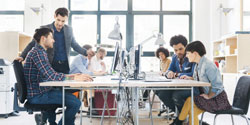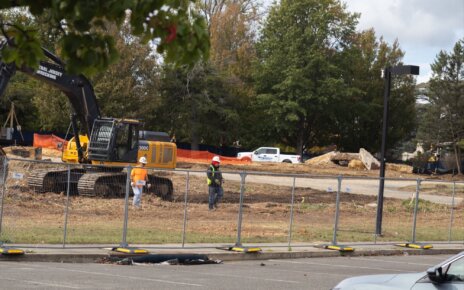A recent study of over 1,500 Americans by the work management platform Wrike found that 66 percent of millennials admit to swearing at work, while only 54 percent of baby boomers say they swear on the job.
Additionally, 45 percent of millennials surveyed said that using swear words at work “doesn’t matter,” while others said it makes communicating easier. Some also said they felt that swearing bolsters camaraderie among colleagues. Another, 36 percent said cursing on the job displays passion for their work. The baby boomers confessed that using swear words while on the job is classless and unprofessional.
While one-third of the respondents said they would not accept a job at a site where swearing was strictly banned.
“I believe we have experienced a coursening of culture over the last several decades. Standards for politeness and socially acceptable behavior have gradually and continuously been sliding downward. We see this all around us, and it has been especially evident in the presidential campaign this year,” said Donna Dolphin, an associate professor of communications.
She added that the high media content that today’s youth engages in may have a profound effect.
“It’s very easy to observe what I’m talking about if we look at media content over the course of time. Something that was considered shocking 15 years ago is considered tame by current standards. Acceptable language in broadcast content today would have been fined 20 years ago. The FCC defines profanity, in part, in accordance with the standards of the local community. So I see evidence that our standards are changing,” she said.
Health care is the professional industry with the most potty-mouths, as 64 percent of health care employees say they swear at work. Finance has the second most, with 62 percent, followed by professional services and technology. Further, those in the classroom admit to cursing frequently too, as 24 percent of educators say they swear frequently at work. Additionally, it was found that 94 percent of those foul-mouthed workers swear more often in face-to-face conversation, than online.
“I feel that this is because millennials are laid back and tend to be more rebellious than previous generations were, but I also think this shows a sign of disrespect,” said Kristen Jezycki, a senior marine biology student. “I think this shows that society as a whole is changing and that expectations for respect are declining.”
Traditionally, most office environments are very professional ones in which people dress formally and do not curse, but the recent poll suggests that the times are rapidly changing as younger people dive into the workforce.
On the contrary, 45 percent of baby boomers noted that swearing in the workplace “is too casual and feels unprofessional.” Moreover, 80 percent of millennials said they were more likely to curse if their boss is seen cursing, whereas only 61 percent of baby boomers agreed.
Michael Schwebel, PhD., a community resilience and climate change adaptation specialist at the University is a part of the millennial generation. He said that the increase in foul language is correlated with more comfortability in work environments. He said that today’s youth are frequently situated in non-formal environments, and therefore they have learned to act less formal.
With regard to millennial females, 67 percent of women admitted to swearing at work, compared with 66 percent of men. Millennial women are also less offended by listening to curses at their place of work. Contradictorily, 50 percent of millennial men preferred a working environment where swearing is commonplace, whereas 40 percent of millennial women said they would prefer a working environment in which cursing is a common practice.
“If you look at shows such as TMZ, most people are wearing polos and other non-formalwear to work. It is a very laid back and less strict environment,” said Schwebel. “A professional environment like that would never have existed when baby boomers were the main generation in the workplace. So the millennials are very accustomed to their situations being non formal. These factors may explain the increase in cursing in the workplace.
Danielle Cohen, a senior psychology student, said that she believes the statistics are a result of living in a less censored world in which social media utilizes less filters and is based off a younger audiences’ perceptions of the world. “I feel that society is changing, and is using the current millennial mind set as the new social norms,” said Cohen. “If television and radio advertise and use foul language, then psychology would suggest that we are just taking in our own environmental factors and using them as a new 2016 social norm.”
Additionally, Malcolm Wilson, a junior health studies student, agreed that the media plays a tremendous role in shaping the behaviors of today’s young adults. “The media probably plays a big part in this change because as social norms changed throughout the years, the media then became more and more explicit and millennials grew up on that media culture,” said Wilson.
IMAGE TAKEN from hubspot.net




